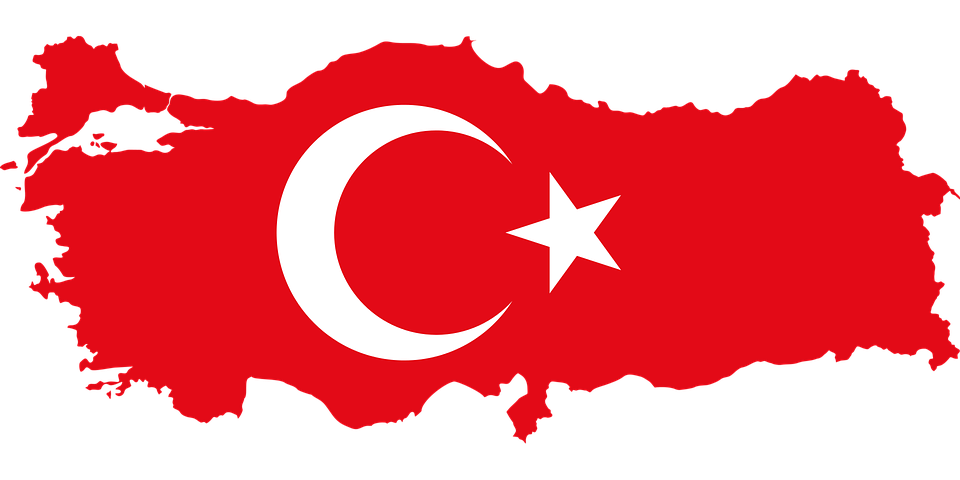Turkey, Belarus, and Georgia have something in common this fall. All three are reevaluating their relationship with Russia. Belarus fears the consequences of closer military involvement with Moscow in its war in Ukraine. Georgia, seeing how badly the war is going to Putin, has presented the idea of holding a national referendum on opening a second front against Russia. Turkey, however, may be the real game changer that alters the balance of power in the region. It is a NATO member sitting in a strategic geopolitical position. “Turkey has become the primary armed drone seller to the Ukrainian military with a recent combat record in Donbas. This drastic swing is making things much more difficult for analysts and policymakers. The Ukrainian drone strikes in Donbas and Turkish unmanned systems mushrooming in Eastern Europe and the South Caucasus have further complicated Turkish-Russian relations, according to Can Kasapoglu of the Jamestown Foundation.
Turkey is more dependent on militarized drones than any other NATO state. Last year well-known political analyst Francis Fukuyama blogged that “it seems Turkey’s use of drones is going to change the nature of land power in ways that will undermine existing force structures, in the way that the Dreadnought obsoleted earlier classes of battleships, or the aircraft carrier made battleships themselves obsolete at the beginning of World War II.” Kasapoglu suggest that Turkish-Russian bilateral relations are shaped by a careful compartmentalization of strategic interests and divergences and are transactional in nature. While their strategic interests remain at odds, Ankara continues to have a gigh level of economic interactions with Russia. It buys Russian natural gas alongside military purchases such as the S-400, a high-end Russian strategic SAM system that triggered CAATSA (Countering America’s Adversaries Through Sanctions Act) sanctions.
Turkey’s long-standing rivalry with Russia in the Black Sea holds Russia’s hegemonic ambitions in the area in check. Putin refrains from using the “energy card” against Turkey as Ankara has been a careful counter-balancer to Moscow and avoided a NATO-like hard-liner approach. Turkey’s Black Sea policy prioritizes regional cooperation with the other Black Sea countries, rather than solely depending on its Western allies, says Kasapoglu. Turkey’s goal is avoid escalation in the Black Sea. Turkish Foreign Minister Mevlüt Çavuşoğlu often calls for calm in the sea basin and for Ukraine and Russia to solve their problems through diplomacy. At the same time, Ankara sold drones o Kyiv and is building a joint drone bomber production facility with Russia. Turkey isolates its economic and military policies. Its Black Sea policy is pragmatic, transactional, and loyal to maintaining the status quo in the region.
Turkish foreign and security policy is shaped by three main drivers, according to Kasapoglu: 1) attaining long-term strategic autonomy in key geopolitical affairs and self-sufficiency in defense technologies, 2) building new partnerships to minimize Turkey’s over-dependence on its traditional Western allies, and 3) avoiding direct confrontation with Russia. “The latter”, he says, “bears significant implications for Turkish military policy, while the first and second drivers can, interestingly, make it harder for Turkey to avoid a collision course with Russia.” Over the last two decades Turkey’s self-sufficiency has moved from 80% dependency on external military supplies to 20% today. Drone warfare, in particular, has turned into the crown jewel for Turkey’s military strategic posture. It translates into defense sales and a “geopolitical outreach asset,” says Kaspoglu. More important, perhaps, is that part of Turkey’s drone sales take place in the Russian hinterland, are emerging as the best available solutions in international weapons markets given their price and combat effectiveness. Ukraine, Poland, and soon the Baltic states, all will have signed agreements to procure militarized drones from Turkey despite Russia’s objections. Turkish-made drone assets are a powerful deterrent that could soon surround Russia’s Western and Southern military districts. It could neutralize the Russian threat at its source for Turkey and turn Ankara into a preemptive regional actor in southeastern Europe rather than a defense-oriented member of NATO. Turkey’s rise in status in the South Caucasus also helps it develop important partnerships of special geostrategic value that serve its Black Sea interests.
In the post-Cold War era turkey is emerging as an upcoming NATO power ready to check Russian aggression, despite some balancing with Moscow in the past. Putin has reason to fear that the Black Sea could become a “NATO lake” in the future. Kaspoglu suggests that “it remains to be seen how the Turkish administration will fine tune its compartmentalized cooperation and competition patterns with Russia. Regardless, Turkey remains a “dronized” military power on Russia’s doorstep, something Moscow will not be able to ignore.
Daria Novak served in the U.S. State Dept.
